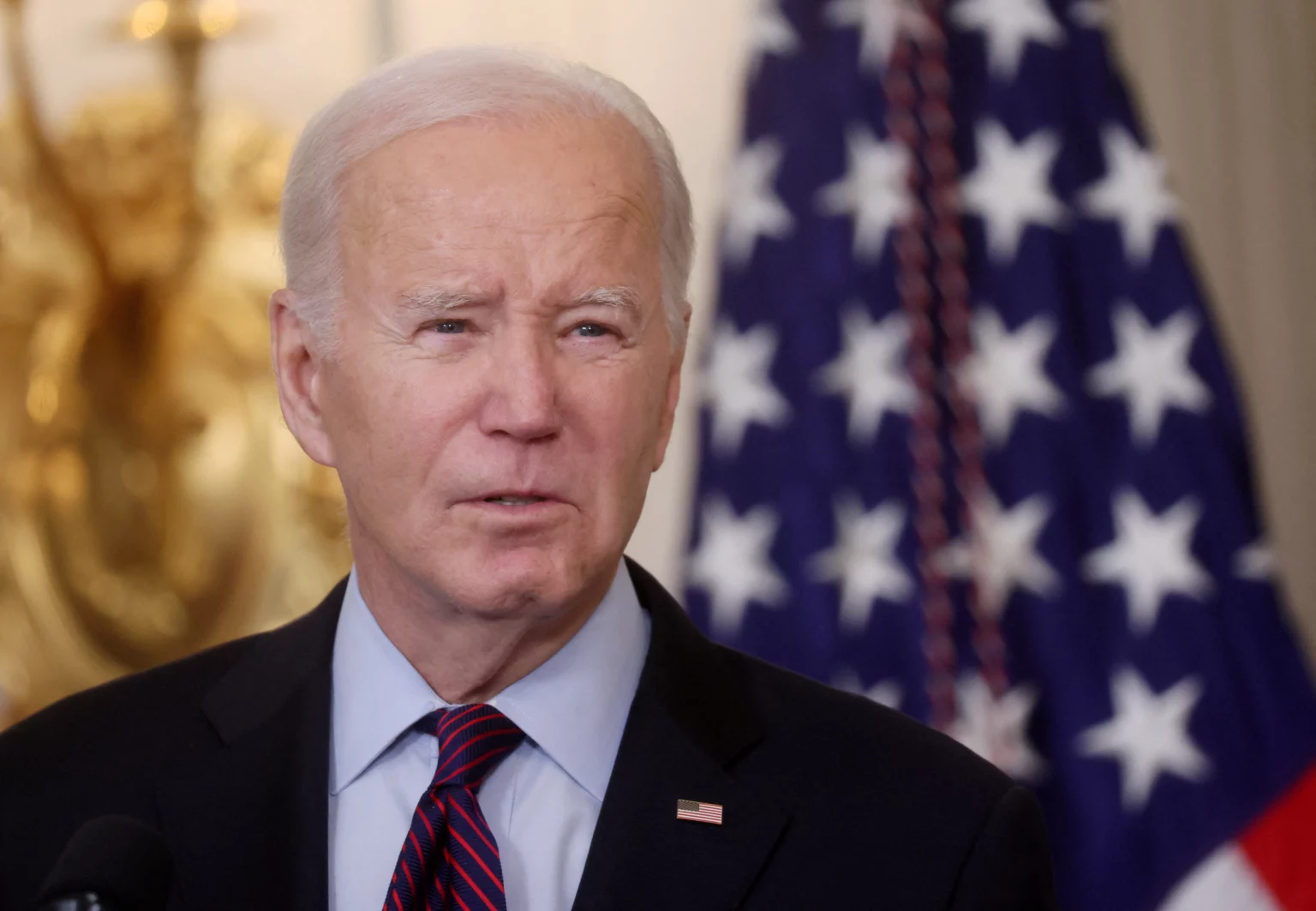US President Joe Biden’s administration has announced it will tighten curbs on methane emissions from the oil and gas industry.
The Environmental Protection Agency (EPA) announced the COP28 climate talks in the UAE, where the host country, the United States and China were set to hold talks on methane and other non-carbon dioxide gases.
EPA’s new policies would ban routine flaring of natural gas produced by newly drilled oil wells, require oil companies to monitor for leaks from well sites and compressor stations, and establish a program to use third-party remote sensing to detect large methane releases from so-called “super emitters,” the agency said.
The rules would prevent an estimated 58 million tons of methane from reaching the atmosphere between 2024 and 2038 — nearly the equivalent of all the carbon dioxide emissions from the power sector in 2021, EPA added.
It is a critical step toward meeting its commitments to reduce the powerful greenhouse gas.
Michael S. Regan, administrator of the US Environmental Protection Agency, said: “This is historic news for our climate, for our future, and for our children.”
“I’m thankful to the industry, I’m thankful to the states, and I’m thankful to organizations that were willing to come to the table and help us tackle this urgent challenge.”
“The result is a historic action,” he added.
New Mexico Governor Michelle Lujan Grisham also spoke, saying: “I’m incredibly proud to participate in this bold federal announcement today.”
Talking about New Mexico in particular, she said: “We’ve seen already a 70 percent reduction in methane emissions from oil and gas industry…these frontline efforts in our rules require that by 2026, there’s a 98 percent reduction, which basically means eliminating from that industry methane pollution.”
She said that this wouldn’t have happened without the US Biden-Harris Administration and their methane emissions action plan.
White House National Climate Advisor Ali Zaidi said, while the US presses to phase out its reliance on fossil fuels, “we must work to clean up existing operations… today’s announcement does just that.”
The announcement will mean 130 million metric tons of emissions reductions just in 2030, he said.
In the past year, the US has deployed $1 billion to cap abandoned wells and has implemented a rule to improve the performance of 2.7 million miles of pipelines, patching up leaks that provide a danger to communities. They have also deployed $130 million to cut food waste which drives methane emissions, and deployed $700 million to capture agricultural methane.
Methane – which is potent but relatively short-lived – is a key target for countries wanting to slash emissions quickly and slow climate change. It is responsible for about one-third of the warming from greenhouse gases occurring today.
“The finalization of these methane standards addresses a glaring regulatory gap,” said Julie McNamara of the Union of Concerned Scientists.
“For far too long, oil and gas companies have been allowed to spew methane and serious health-harming pollutants without any limits — all while shoving the towering costs of that pollution onto people and the environment.
The new standards would phase in a requirement to eliminate routine flaring of natural gas produced by oil wells and require comprehensive monitoring of methane leaks from wells and compression stations.
It would also establish standards requiring reductions in emissions from equipment such as pumps, controllers, and storage tanks.
The United States initially proposed rules in 2021 and 2022, with the latest action building upon those after receiving a million public comments.
The EPA estimated it would prevent an estimated 58 million tons of methane emissions from 2024 to 2038, the equivalent of 1.5 billion metric tons of carbon dioxide.
“In 2030 alone, the expected reductions are equivalent to 130 million metric tons of carbon dioxide — more than the annual emissions from 28 million gasoline cars,” the agency said in a statement.
In addition to methane, enacting the rule would reduce emissions of smog-forming volatile organic compounds (VOCs) that cause respiratory problems including asthma attacks, as well as toxic air pollutants such as benzene that can cause cancer.
The United States and the EU led a “Global Methane Pledge” at COP26 in Glasgow. It now has 111 country participants who have vowed to reduce methane emissions by 30 percent below 2020 levels by 2030.
But an analysis of satellite data by environmental intelligence company Kayrros shows so far little progress among the signatories, save for Australia. US emissions are increasing.
McNamara said the new rules would not make fossil fuels “clean.”
“For the health and well-being of people across the country, and the world, this must only be an intermediate step on the path to a sharp wind-down of fossil fuels,” she said.




